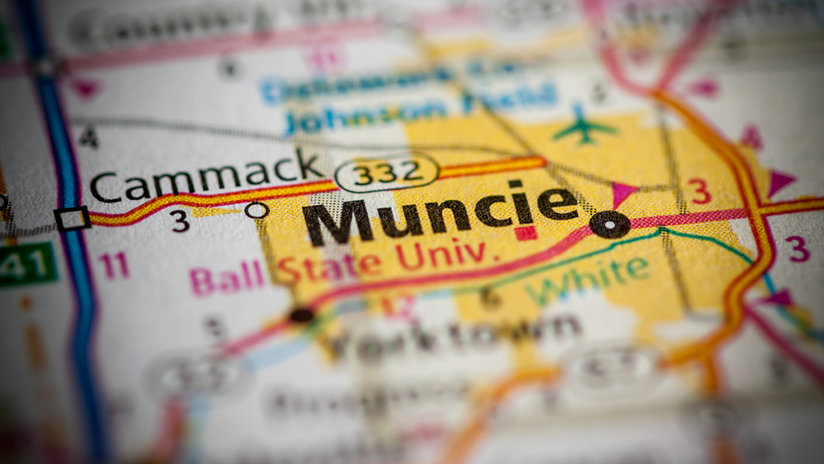Islamophobia 101
Reported hate crimes in America rose 17 percent in the past year, the third consecutive year they’ve increased. 273 of those incidents were anti-Islamic.
This is the second in a series, Hate 101, that traces the roots and history of hate against certain targeted groups, with a view toward increased understanding as a first step toward healing. This article focuses on hatred, fear and prejudice against Muslims, often called “Islamophobia.”
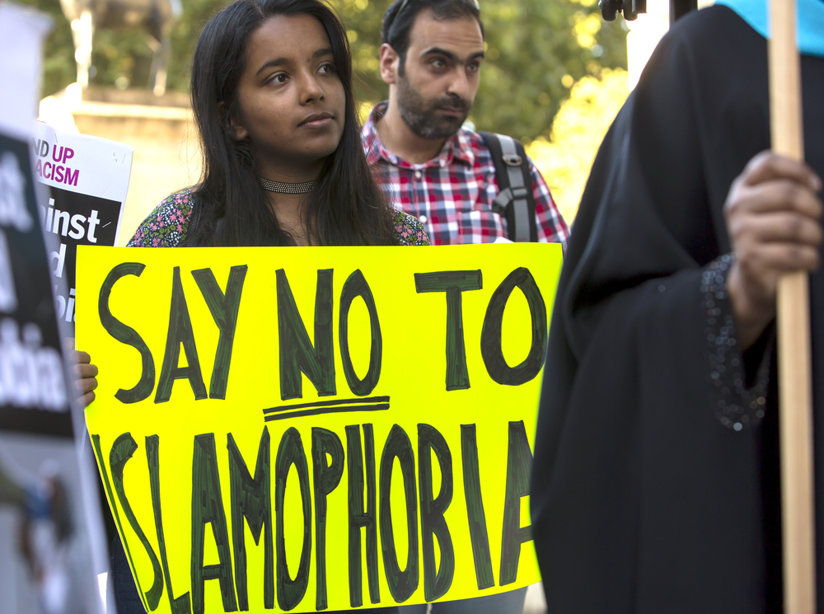
1.5 to 2 billion of the world’s people identify as Muslim. That means that nearly 1 out of 4 people in the world believe in the Quran, the Oneness of Allah and Muhammed as the Prophet of Allah.
Allah means “The God.” In other words, there is no category of gods or divinity to which Allah belongs. Allah is simply God.
The Arabic world of the 6th century CE was one of licentiousness and tribalism. Arabs worshipped many gods. When Muhammed came on the scene in Mecca (in current Saudi Arabia) his teachings of moral living, peace and supplication to the one God of the Christians and Hebrews horrified town leaders. After all, the worship of one God threatened their year-round revenue from Bedouin pilgrimages to the city’s 360 shrines (one for each day of the lunar year). Further, a call to end debauchery was almost as unpalatable as this new God’s tendency to treat all people equally, in a land divided strictly by class.
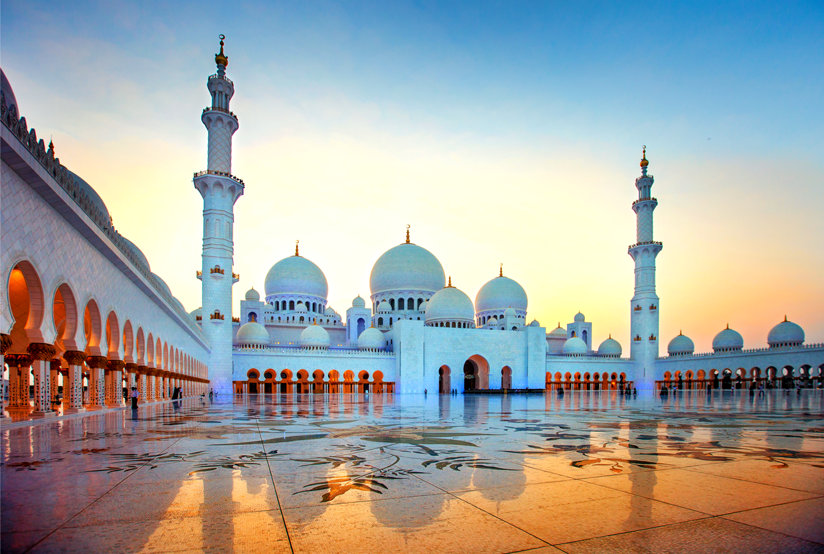
Threatened by capture and death, Muhammed fled Mecca in 622. This Hejira, literally “flight,” is regarded by Muslims as the turning point in world history, and the date from which their calendar begins. Taking up his ministry in the welcoming town of Yathrib, which soon changed its name to Medinat un-Nabi (“City of the Prophet”) and then, simply, Medina, Muhammed became the area’s prophet, teacher, statesman, judge and general. By all accounts he was extraordinarily able in these roles, while living simply, with none of the trappings of great office, and while insisting he was nothing more than the messenger of Allah, with no divinity or importance of his own.
Islam did not introduce monotheism—Abraham did that.
Islam did not introduce the Ten Commandments as law—Moses did that.
Islam did not introduce The Golden Rule—Jesus did that.
What Islam did do, and its greatest gift to the world, was to answer the question: “How?” How do I love my neighbor as myself? How do I find the straight path? And, once I’ve found that straight path, how do I stay on it? These questions are answered specifically and directly in Islamic scripture, while celebrating and reaffirming Abraham, Moses and Jesus as prophets of a benevolent and just God, and placing Muhammed with them, as “the Seal of the Prophets,” the mortal man who completed and confirmed the work of his three predecessors.
Islam doesn’t concern itself with why things are the way they are (why is there inequality? Why are there haves and have-nots?) it concerns itself, again, with how: how do we help the have-nots and those who suffer from inequality? The answer is specific: 1/40th of one’s holdings, property and capital go to the poor (not to one’s religious institution, but specifically to the poor). Other social matters are handled in the same way: not why, but how.
Pope Urban II set the tone for a millennium-long identification of Muslims as direct enemies of Western values, culture and morals. Western culture was good, pure, logical, virtuous, orderly. Islam was bad, polluted, senseless and violent.
Another great gift of Islam is that one may create one’s temple anywhere. Wherever one lays the prayer rug, be it in a hovel, a clearing in the woods or a great mosque, that place is sacred ground.
Everyone has divinity within them. Everyone is a child of God.
Islam spread quickly amongst those whose livelihoods and hidden agendas were not threatened by it. For a people dwelling in a barren land, prey to mysterious forces of wind and storm—where a mirage could lead one to destruction or a quirk of weather could mean life or death—a belief in an unseen but benevolent God at the root of all things furnished comfort that one was cherished and loved, after all, and with that reassurance came hope.
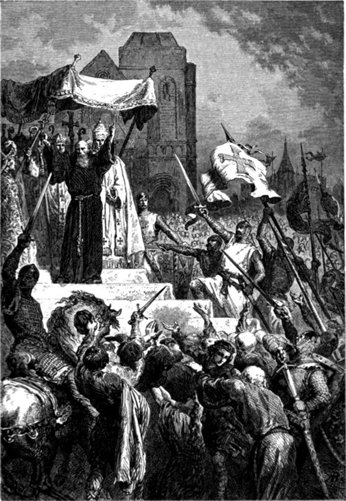
The origins of organized hate against Islam and its people can be precisely dated: November 27, 1095. On that day, Pope Urban II declared a holy war on Islam. Speaking to a spellbound multitude in Clermont, France, he falsely accused the Muslims in Jerusalem of unspeakable atrocities against Christians (though Muhammed himself had insisted on reverence and protection of Hebrews and Christians within his borders as fellow children of God).
Pope Urban II condemned Muslims as “an accursed race, a race utterly alienated from God.” He called on all righteous Christians to retake Jerusalem from those who had polluted it, and guaranteed that those who gave their lives in this crusade would earn a place in Heaven. Electrified, the crowd cried as one, “It is the will of God! It is the will of God!”
Pope Urban II responded: “Let this then be your war-cry. When an armed attack is made upon the enemy, let this one cry be raised by all the soldiers of God: ‘It is the will of God! It is the will of God!’”
Four years later, the Christians captured Jerusalem, killing every man, woman and child there in a horrific bloodbath that stunned the Muslim world.
Pope Urban II set the tone for a millennium-long identification of Muslims as direct enemies of Western values, culture and morals. Western culture was good, pure, logical, virtuous, orderly. Islam was bad, polluted, senseless and violent.
This theme was picked up by a French thinker, Charles-Louis de Secondat, also known as “Montesquieu,” whose writings on government had a profound influence on the Founding Fathers In his essay “The Spirit of Laws,” he digressed from the subject of democracy and said this about Islam:
“From the characters of the Christian and Mahometan [Islam] religions, we ought, without any further examination, to embrace the one and reject the other… The Mahometan religion, which speaks only by the sword, acts still upon men with that destructive spirit with which it was founded.”
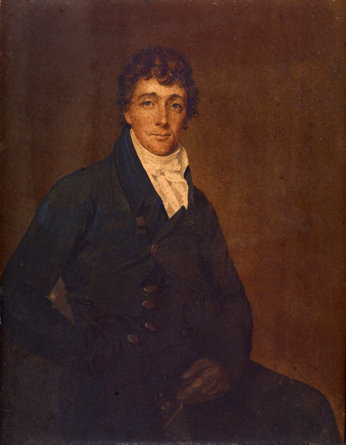
Years later, an early published draft (1805) of Francis Scott Key’s “Star-Spangled Banner,” inspired by the young U.S. Navy’s victory over the Barbary pirates in the Mediterranean, includes these lines:
In conflict resistless each toil they endur’d,
Till their foes shrunk dismay’d from the war’s desolation:
And pale beamed the Crescent [ancient symbol of Islam], its splendor obscur’d
By the light of the star-bangled flag of our nation.
Where each flaming star gleamed a meteor of war,
And the turban’d head bowed to the terrible glare.
How triumphant they rode on the wandering flood
And they stained the blue waters with infidel [Muslim] blood.
A hundred years later, President Theodore Roosevelt commented on Islam: “It is impossible to expect moral, intellectual and material well-being where Mohamedinism [Islam] is supreme.”
Hollywood then carried the banner over the following century into our own time with stereotypes of Arab Muslims as villainous and barbaric. Or as one media critic commented after watching his umpteenth “evil Arab” tinseltown flick: “They’re either billionaires, bombers or belly-dancers.”
These false stereotypes trace their roots back to Pope Urban II nearly a thousand years ago, when he first condemned Arab Muslims as a violent, barbaric people, a threat to “our” way of life.
Four persisting falsehoods have aided and abetted Islamophobia:
- Muslims are Arabs, and Arabs are all bad
- Muslims are, by nature, a violent people
- Muslims hate all non-Muslims
- Muslims are out to impose terrorist Sharia law on us all
Let’s explore each of these falsehoods in its turn:
1. “Muslims are Arabs, and Arabs are all bad”
The truth is that just 12 percent of the world’s Muslims are Arab. Moreover, most Arab-Americans identify as Christian, not Muslim, and nearly half were born in the U.S.
2. “Muslims are, by nature, a violent people”
Contrary to Hollywood and the media, most Arabs are not terrorists or terrorist sympathizers. It’s unfortunately rare to see a movie or TV series portray an Arab born in the U.S. and working as a teacher, doctor, banker or a member of any other mainstream profession. Moreover, the image of the sword-wielding Arab spreading his religion through force is false. True, Muhammed himself was a fearless general who did not want to take the martyr’s route as did so many other religious teachers, but he decreed that the sword is to be used only in self-defense, to prevent one’s own people from perishing: “Defend yourself against your enemies; but attack them not first: God hateth the aggressor” (Quran, 2:190). Aggressive attacks, such as those of Isis and al-Qaeda and other militant organizations that pretend to slaughter in the name of Allah, then, are directly violating the principles of Islam, and to label them as “radical Islam” or “Islamic extremists” is to degrade the religion of salam alakum (“peace be unto you”), for such groups bear as little in common with Islam as the Ku Klux Klan does to Christianity.
Besides, between 82 to 95 percent of the victims of terror in the world are Muslims. All one has to do is reflect upon the many thousands of peace-loving Muslims slaughtered or made homeless by Isis in Iraq, or subjugated by the oppressive heel of the Taliban in Afghanistan. So, ironically, despite the media and hysteria, most Muslims have been the victims—not the perpetrators—of terror.
3. “Muslims hate all non-Muslims”
Again, let’s go to the source. “Let there be no compulsion in religion” (Quran, 2:257) and “If God had pleased, he would have made all mankind one religion. But He hath done otherwise” (Quran, 5:48). Muhammed incorporated these words when he told his countrymen: “Wilt thou force men to believe when belief can come only from God?”
But Muhammed went a step further, drawing up a charter for the people of Medina, guaranteeing religious tolerance and freedom of persecution to all faiths. It was history’s first official declaration of freedom of conscience and religion. Freedom of religion began with Islam.
4. Muslims are out to impose terrorist Sharia law on us all
The fact is, very few non-Muslims have a clue, other than what they’ve been fed by memes and media, what exactly “Sharia law” is. Those who protest against the “horrors” of Sharia law may be surprised to learn they are protesting ethical behavior and integrity.
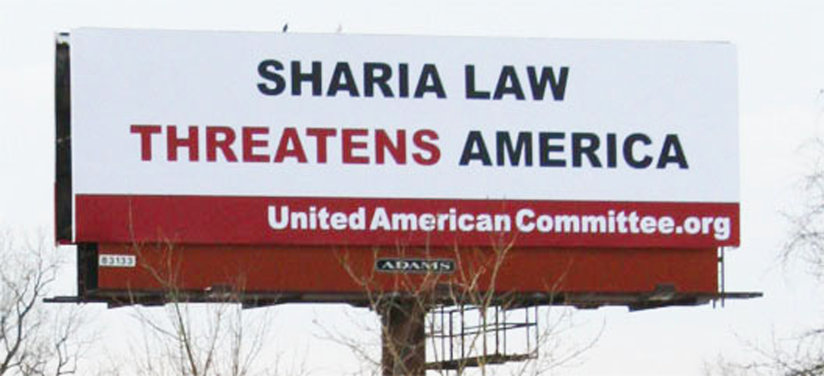
Sharia literally means “the path.” It is a set of guiding principles on how to lead an ethical, happy life in order to attain contentment in this life and salvation in the afterlife. Sharia law is composed partly of direct revelation from the Quran and Muhammed, and partly of interpretations of the Quran over the centuries by Muslim scholars. It covers everything from how to deal in harmony with your neighbor to remembering to brush your teeth.
What people object to in Sharia law is a handful of severe corporal punishments recommended for serious crimes such as theft, illicit sex and apostacy. But even these are 99.9 percent mitigated by the Sharia requirement to “maximize mercy,” based on Muhammed’s plea: “Ward off the Hudud (severe punishment) from the Muslims as much as you all can, and if you find a way out for the person, then let them go. For it is better for the authority to err in mercy than to err in punishment.”
There is more than a little similarity, then, between Sharia law and the more familiar Old Testament’s exhortation to mercy laced throughout its own strict, often violent, justice, as in Exodus, 34:6-7: “The Lord passed before him and proclaimed, ‘The Lord, the Lord, a God merciful and gracious, slow to anger, and abounding in steadfast love and faithfulness, keeping steadfast love for thousands, forgiving iniquity and transgression and sin.”
Sharia law is broad enough for wide interpretation among the various sects and schools of Islam. It is a set of guidelines, much like the Jewish Talmud or St. Thomas Aquinas’ writings in Christianity—revered, but not written in stone.
“Spread peace, feed the hungry, maintain ties with your family and pray while others sleep.” — Muhammed
Peace-loving, reverent, magnanimous, tolerant to all, the religion of Islam has been grossly and criminally attacked over the centuries. And what is the net result of the lies, misunderstandings, disinformation, hysteria and stereotypes concerning Islam and its followers? According to a Pew 2014 survey, just 30 percent of Americans have a favorable view of Islam.
An American Muslim today, one of about 3.5 million, or barely one percent of the total inhabitants of the U.S., must sometimes feel the way Muhammed must have felt so long ago in Mecca: the object of suspicion, dislike, and ridicule, often the target of hate and abuse.
Muslims have responded to that hate with love and affirmation of their faith. A hate murder of three Muslim students in North Carolina resulted not in condemnation, but in a grassroots coast-to-coast campaign to feed the hungry. Within a month, over 300 Muslim groups sprang up across the U.S., giving canned food and meals to the needy.
There are over 20,000 Muslim doctors in the U.S. operating over 100 free medical clinics, open to everyone, regardless of race or creed.
Over 3,000 Muslims serve with honor in the U.S. military.
In Detroit, Muslims helped over 30,000 people regain clean water. In the past two years, Muslims have fed over 90,000 meals to the hungry. Muslims raised a quarter of a million dollars for Hurricane Katrina relief, have donated over half a million dollars to the Salvation Army in Washington, D.C., organized over 900 blood drives in the past three years and raised over 100,000 dollars for black churches targeted by arson.
Muhammed arrived in Medina, barely alive, having escaped persecution, humiliation and death in Mecca.
American Muslims, despite everything that’s been thrown at them, continue to heed his words—those he delivered after arriving, starving and weak, to his new homeland: “Spread peace, feed the hungry, maintain ties with your family and pray while others sleep.”







